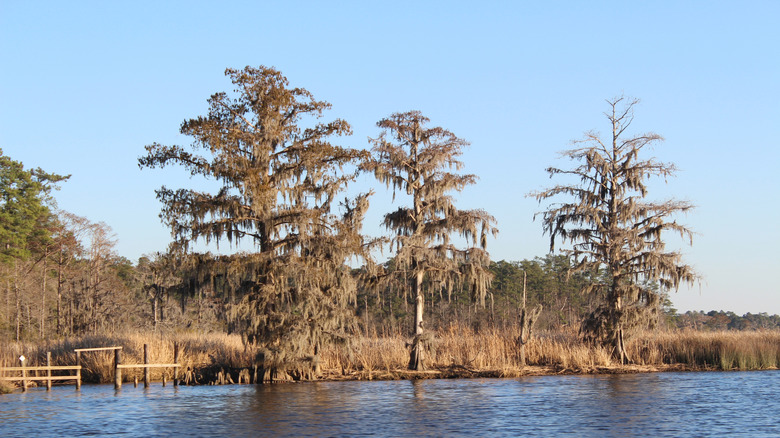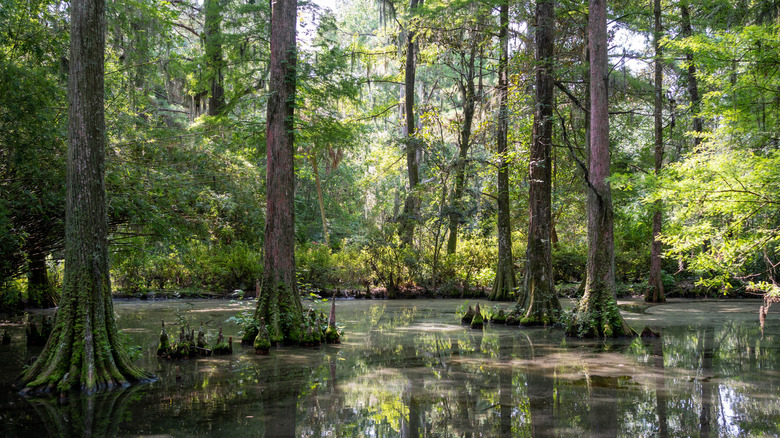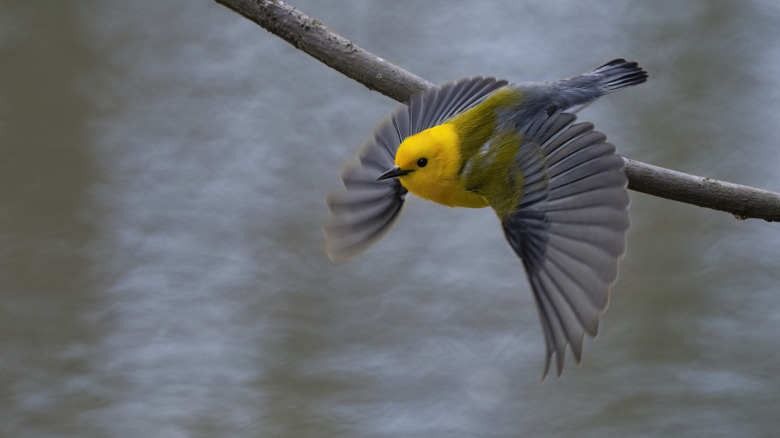South Carolina's Lowcountry Labyrinth Is A River Refuge With Cypress Preserves And Moss-Draped Boughs
South Carolina boasts an embarrassment of natural riches, from a forest that feels like the Central Park of the South to pretty beaches with seafood and quiet shores. Yet a burgeoning natural wonder is springing up in its Lowcountry, a meandering river refuge called the Black River. The 151-mile labyrinth offers cypress preserves containing some of the oldest trees in America, their moss-draped boughs creating unusually peaceful environs.
The Palmetto State has several "blackwater" rivers coursing through its coastal plain, tinted dark by decaying plantlife. Heavy rains lift the Black River's levels, spreading it across the terrain and helping to feed its cypress swamps. Lower levels reveal the stunning white sandbars that line the Black River's banks. It's a veritable paradise for paddlers, campers, and anglers, all of whom will find some way to keep busy during a visit.
The ecological marvel also has a deep, storied history that connects it with the United States' genetic code. During the Revolutionary War, the area was home to a series of guerrilla-style skirmishes against the British, with General Francis "Swamp Fox" Marion leading America's forces. From then, it was an economic engine for the region until conservation and preservation came to the fore in the 21st century. A 75-mile stretch of the Black River was designated a State Scenic River in 2001, with conservation efforts expanding in the ensuing decades and continuing today.
Wildlife and ancient trees of the Black River
The Black River winds through some of the most biodiverse areas in North America. This refuge helps a vast array of wildlife remain within its native habitat, from migratory birds to amphibians, including several species of treefrogs. Swamps have a bad reputation for being bug-infested, muggy dens hiding biological danger behind every corner. Yet the Black River and its surroundings offer a bucolic counter to the stereotype. Sure, you may come across the occasional brown watersnake (not venomous, though it does pack a painful bite). Still, you're more likely to see and hear the prothonotary warbler, a.k.a. the "swamp canary," a yellow poof of feathers which produces the trademark bridsong of southern swamps. Yet the river's crown jewel has deep roots, not feathers.
The Black River's most arresting feature remains its ancient bald cypress preserves, home to the world's fifth-oldest tree species. The cypress trees are a rare treat, as the 19th-century logging boom cut down many other behemoths that were easier to reach. The large trees' roots grow right out of the water, with Spanish moss dangling delicately from their branches and flat tops. Aesthetic majesty aside, the trees serve an even greater purpose, their canopy and roots providing a habitat for wildlife. Root systems absorb water, with one study showing the river's adjacent forests helped prevent excessive rain from affecting surrounding communities.
The logistics of visiting the Black River
There is no wrong time to visit the Black River, though summers can get a tad hot. Those unlucky few who can't simply drive to the Black River should book a flight to Myrtle Beach International Airport, which is an hour's drive away. On the drive down, be sure to stop at Garden City, a coastal city with charm and watersports. Your visit to the Black River should include an overnight stay. Camping along its banks is common and quite pleasant. Visitors can pitch a tent on the white sands that line the river, enjoying the willow and elm trees hanging overhead.
Best of all, the lack of bugs frees one from the usual need to constantly swat away at one's calves and forearms. One can peacefully and calmly overnight under the stars. Of course, your mileage may vary depending on season and exact location along the river, so consider packing bug spray just to be safe. You should also pack some of the best items for a quick and easy camping retreat. If the great outdoors aren't calling, stay at nearby Georgetown, an underrated riverside South Carolina city that offers eateries, shopping, and art.


